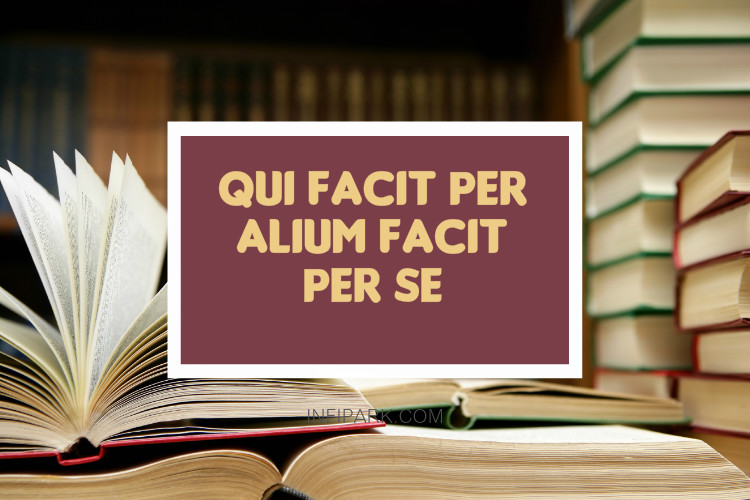The maxim ‘ qui facit per alium facit per se ‘ means that he who does an act through another does it by himself . This maxim is the origin of the principle of vicarious liability which says that the master or principal is responsible for his servant’s or agent’s act . Or in other words the master or principal is held liable for his servant’s or agent’s work . When a servant is entrusted by his master to do some kinds of works , on behalf of or in absence of the master , the servant is left to determine everything arise according to the circumstances . The servant is entrusted the manner in which the work is to be done . So the master is answerable for the wrongs or omissions of his servant , so entrusted to do the act . According to this maxim , the master or principal is held liable either for the manner of doing such work by his servant or the work ought not to have been done by his servant under such circumstances . But it is to be kept in mind that the master is not held liable , if the servant does the act under sudden desire , during the course of his employment , without being entrusted at all .
- Home
- Education
- Laws
- 1st Semester
- Constitutional Law of India – 1
- Contract
- Jurisprudence
- Law of Crimes
- Law of Torts
- 2nd Semester
- Constitutional Law of India – 2
- Contract 2
- Family Law (Hindu Law)
- Jurisprudence 2
- Law of Taxtion
- 3rd Semester
- 4th Semester
- Company Law
- Environmental Law
- Labour and Industrial Law
- 5th Semester
- Civil Procedure Code And Limitation Act
- Law of Crimes – II
- Case Laws
- Drafting
- THE CODE OF CRIMINAL PROCEDURE, 1973
- English
- UPSC CSE
Welcome!Log into your account







